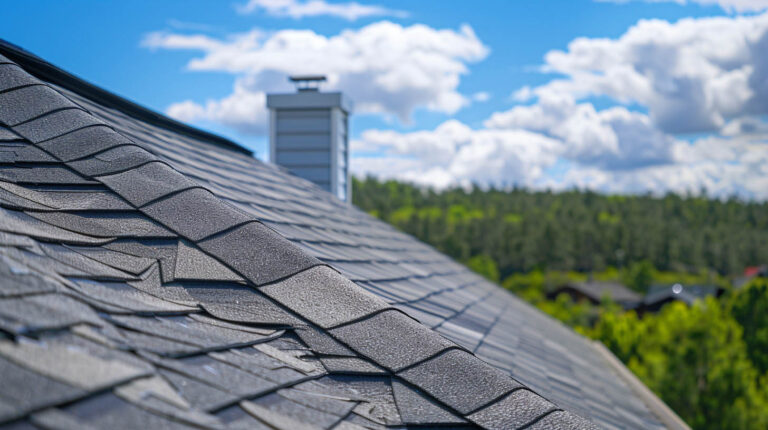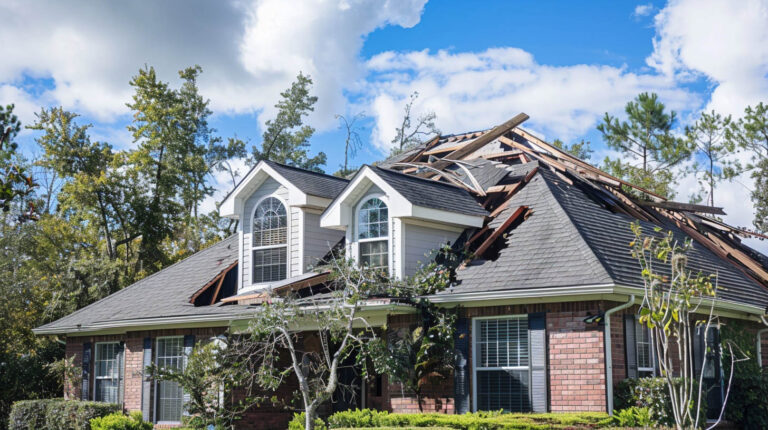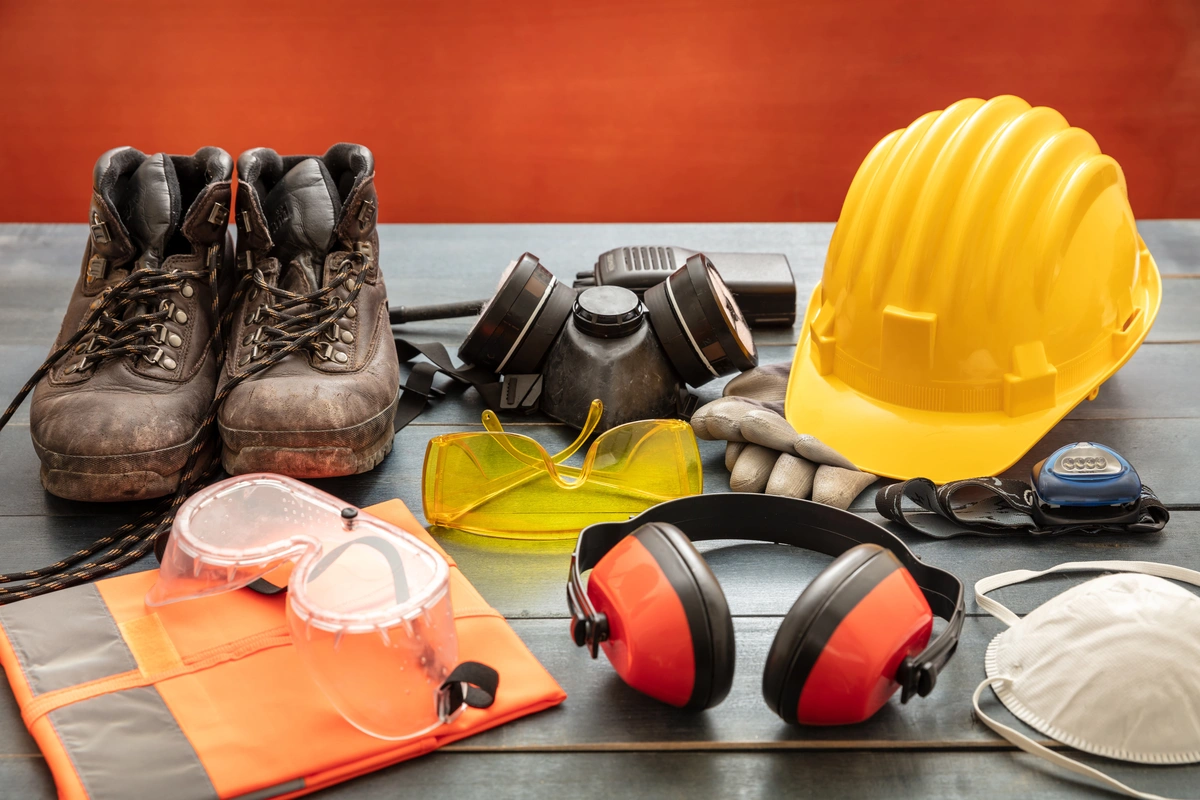
Blog
Roofing Safety Tips: Homeowner’s DIY Guide
Your roof is one of the most critical components of your home, protecting you and your belongings from the elements. However, working on a roof can be hazardous if not done correctly.
Looking to become a roofing safety expert? In this blog post, we will discuss:
- The dangers of roofing
- The pros and cons of DIY roofing work
- Steps to take to repair your roof safely
- Why we recommend hiring a professional for your roofing needs
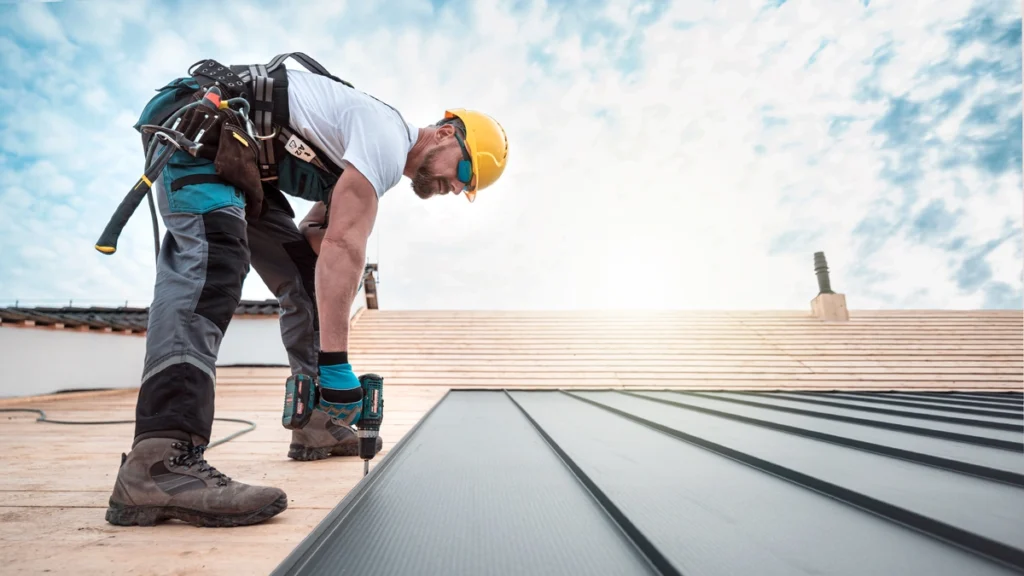
The Dangers of Roofing
Roofing is not a task to be taken lightly, as it poses several significant dangers to those who attempt it without the proper knowledge, equipment, and safety precautions. Here are some of the key risks associated with roofing:
- Falls: Roofing work often involves working at heights, which can lead to severe injuries or even fatalities if a person were to fall. Roofers are consistently one of the highest-risk professions for fatal falls.
- Slips and Trips: Roofs can be slippery, especially when wet or covered in debris. This can result in major fall hazards. Slipping or tripping on a sloped surface can result in injuries, including broken bones or head injuries.
- Electrical Hazards: Roofers may come into contact with electrical wiring and fixtures when working on a roof, increasing the risk of electrocution if proper precautions are not taken.
- Weather Hazards: Roofing work is typically done outdoors, exposing workers to various weather conditions such as rain, wind, and extreme temperatures. These factors can impact both safety and work quality.
- Structural Issues: Roofs can hide structural damage or weaknesses that may not be immediately visible. Walking on a damaged roof can lead to structural failures or collapses.
- Material Hazards: Roofing materials can be heavy, and handling them incorrectly can result in muscle strains, back injuries, or being struck by falling objects.
Pros and Cons of DIY Roofing Work
Many homeowners consider taking on DIY roofing projects to save money. While there can be benefits to this approach, it’s essential to weigh the pros and cons carefully.
Pros of DIY Roofing:
- Cost Savings: One of the most significant advantages of DIY roofing is the potential for cost savings on labor. You won’t have to pay a professional roofer for their services.
- Sense of Accomplishment: Successfully completing a roofing project on your own can provide a strong sense of accomplishment and pride.
- Control Over the Project: When you do it yourself, you have full control over the project, including the choice of materials and the timeline.
Cons of DIY Roofing:
- Safety Risks: As mentioned earlier, roofing can be dangerous. DIYers may lack the necessary safety equipment and training, increasing the risk of accidents.
- Quality Concerns: Roofing is a highly specialized skill, and DIYers may not have the expertise to ensure a long-lasting, water-tight roof. Poor workmanship can lead to costly repairs or replacements down the line.
- Time and Effort: Roofing projects can be time-consuming and physically demanding. DIYers may underestimate the effort required to complete the job correctly.
- Warranty Issues: Many roofing material manufacturers offer warranties that require professional installation. Attempting a DIY project may void any warranty coverage.
8 Steps to Repair Your Roof Safely
If you decide to take on a roofing project yourself, it’s essential to prioritize roof safety proceedures above all else. Here are some steps to help you repair your roof safely:
1) Assess the Situation:
Start by assessing the extent of the damage and the materials needed for the repair. Make a detailed plan and ensure you have all the necessary tools and equipment.
2) Weather Considerations:
Check the weather forecast before starting any roofing work. Avoid working on a wet or windy day, as it can make the job riskier.
3) Safety Gear:
Invest in proper safety gear, including a hard hat, non-slip boots, gloves, safety glasses, and a fall protection harness if you’re working at heights.
4) Ladder Safety:
Use a stable ladder and position it on a level surface. Always maintain three points of contact while climbing.
5) Roof Inspection:
Carefully inspect the roof for weak or damaged areas before stepping onto it. Ensure there are no hidden hazards.
6) Proper Technique:
Use proper roofing techniques, including nail placement, flashing installation, and sealing to prevent leaks.
7) Take Breaks:
Roofing can be physically demanding. Take regular breaks to prevent exhaustion and maintain focus.
8) Ask for Help:
If the job is too big or complicated, don’t hesitate to seek help from friends or family members. An extra set of hands can make the work safer and more efficient.
Why We Recommend Hiring a Professional
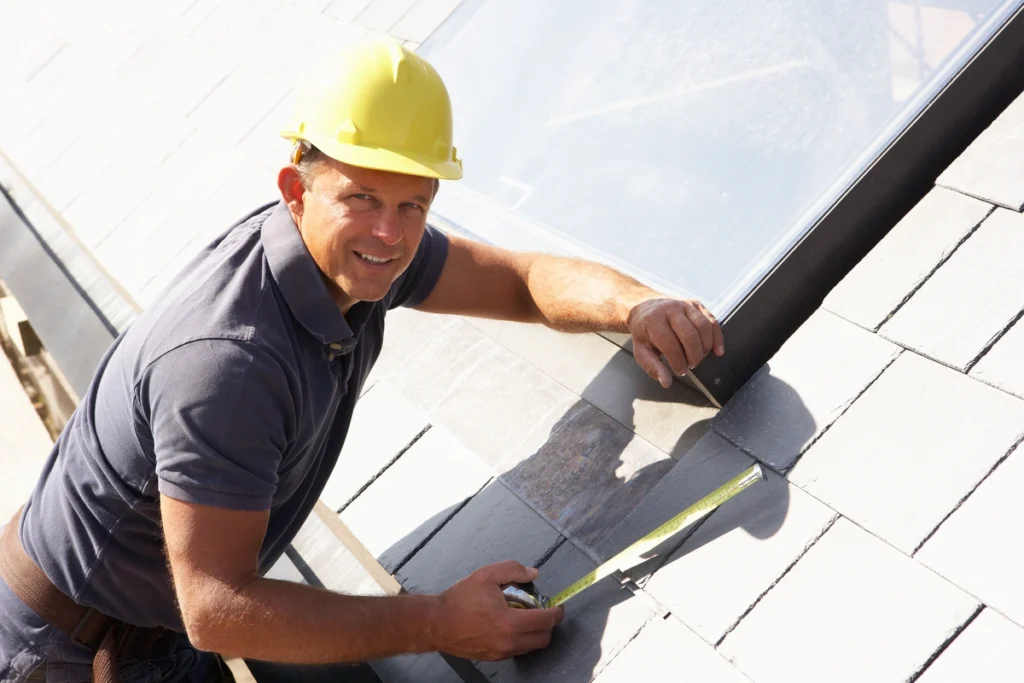
While DIY roofing can be an option for some, hiring a professional roofing contractor is generally the safer and more reliable choice. Here are some compelling reasons why you should consider hiring a professional for your roofing needs:
- Expertise and Experience: Professional roofers have extensive knowledge and experience in working with various roofing materials and systems. They can identify problems and execute repairs efficiently.
- Safety First: Roofing professionals are trained in safety protocols and have the proper equipment to minimize the risk of accidents. They are well-versed in fall prevention and other safety measures.
- Quality Workmanship: Professionals have the skills to ensure that the roofing work is done correctly the first time, reducing the likelihood of future leaks or damage.
- Warranty Protection: Many roofing contractors offer warranties on their work and materials, providing peace of mind that your investment is protected.
- Time and Convenience: Hiring a professional saves you time and effort. They can complete the job more quickly and efficiently, allowing you to focus on other priorities.
- Cost-Effective in the Long Run: While DIY may seem cost-effective initially, professional roofing work can prevent costly mistakes and repairs in the future, ultimately saving you money.
Learn About Our Roofing Safety Procedures
Roofing is a critical aspect of homeownership that should never be taken lightly. While DIY roofing can be tempting, it carries significant risks and potential drawbacks. Prioritizing safety, quality, and long-term durability are essential when it comes to roof repairs and replacements.At Aveunue Roofing, we are always working to improve job site safety, through time tested procedures, and expert workers. Need help with your roofing project? Contact us today to get started!
